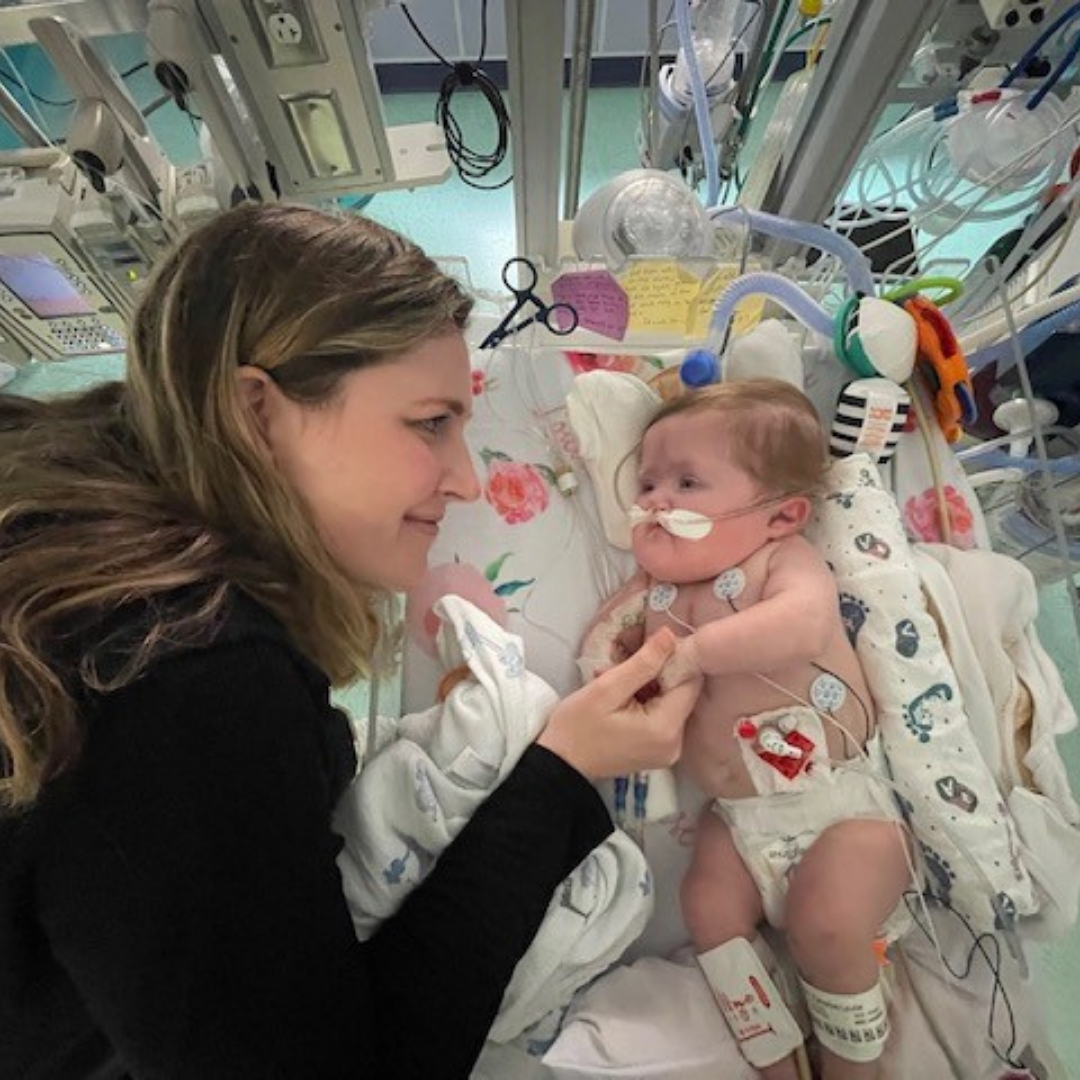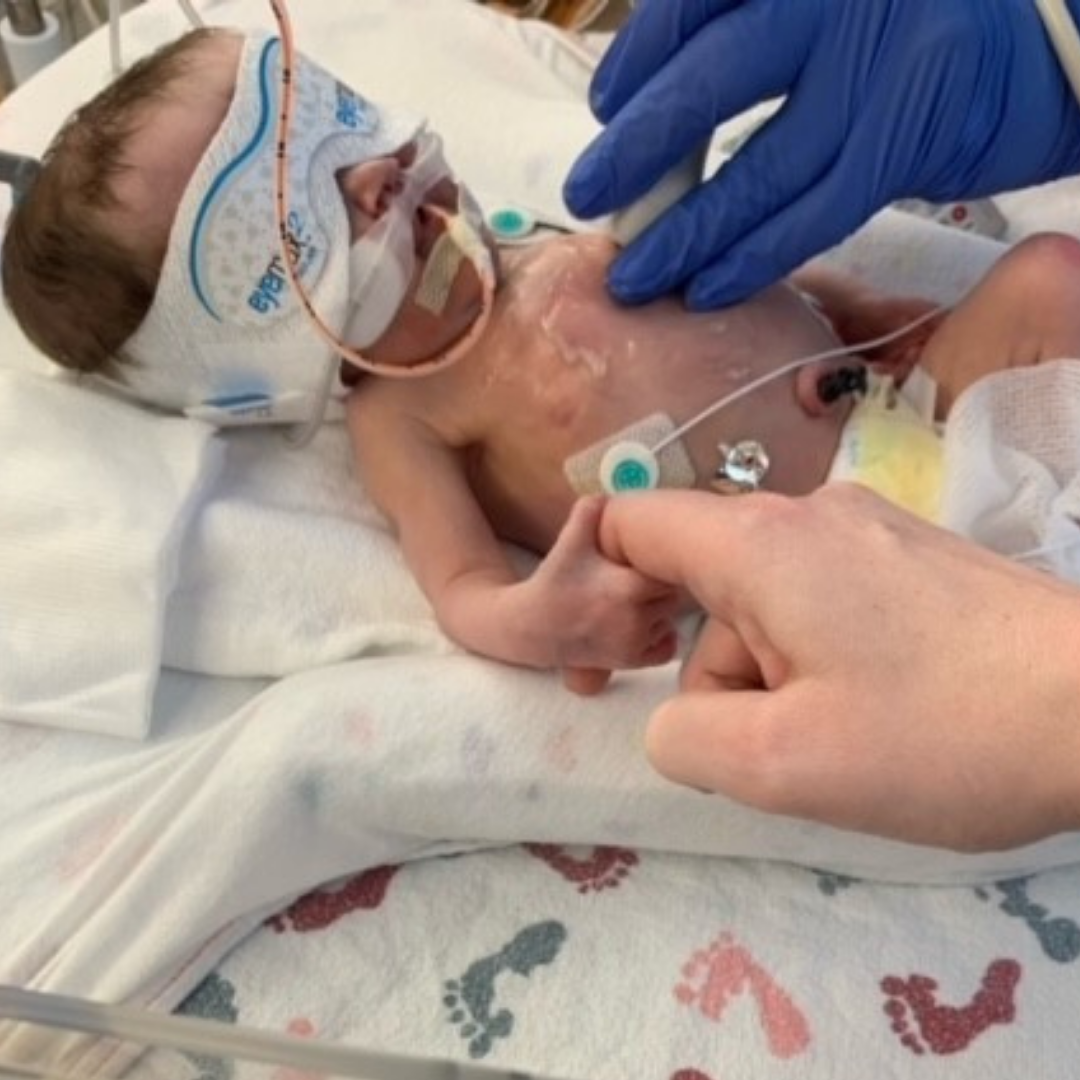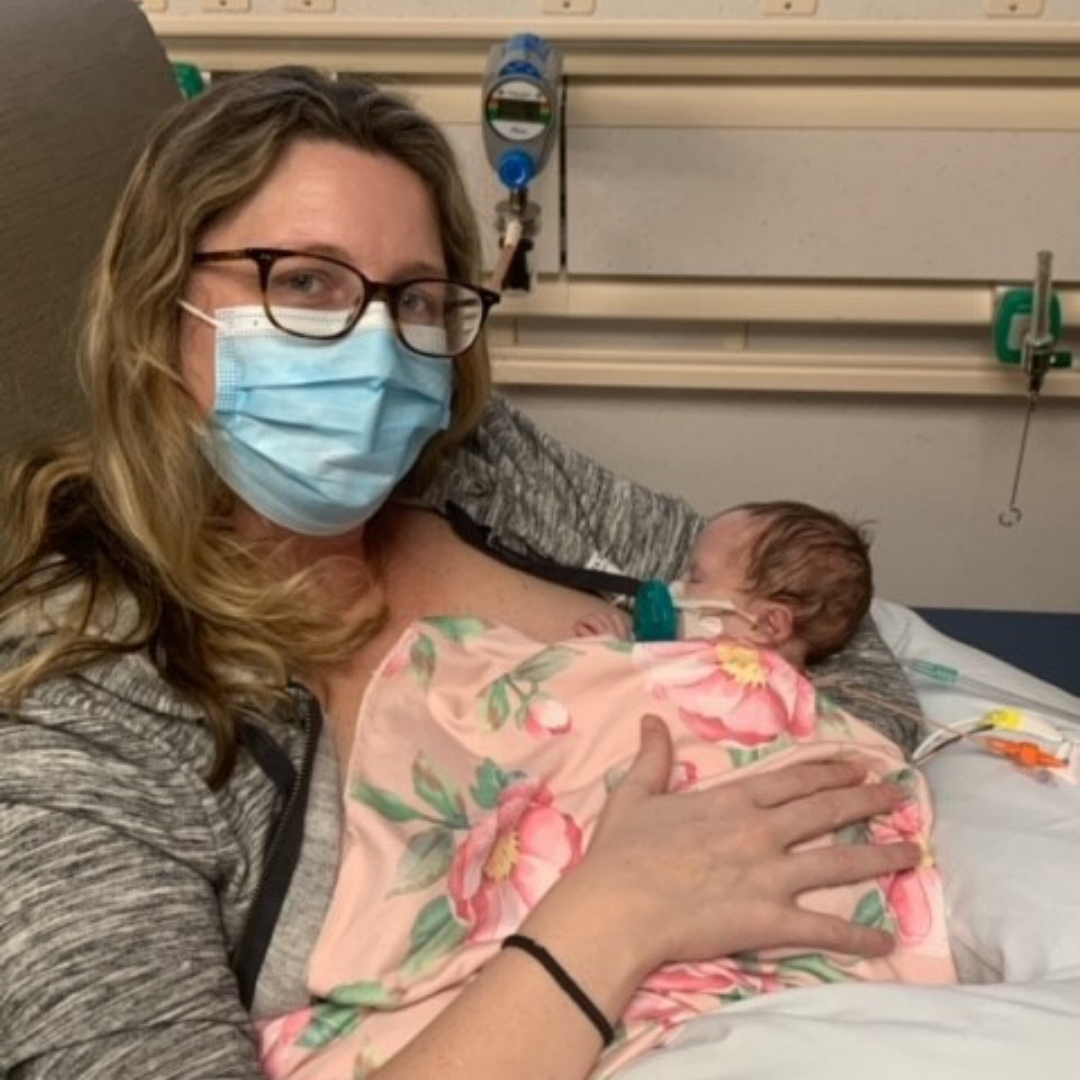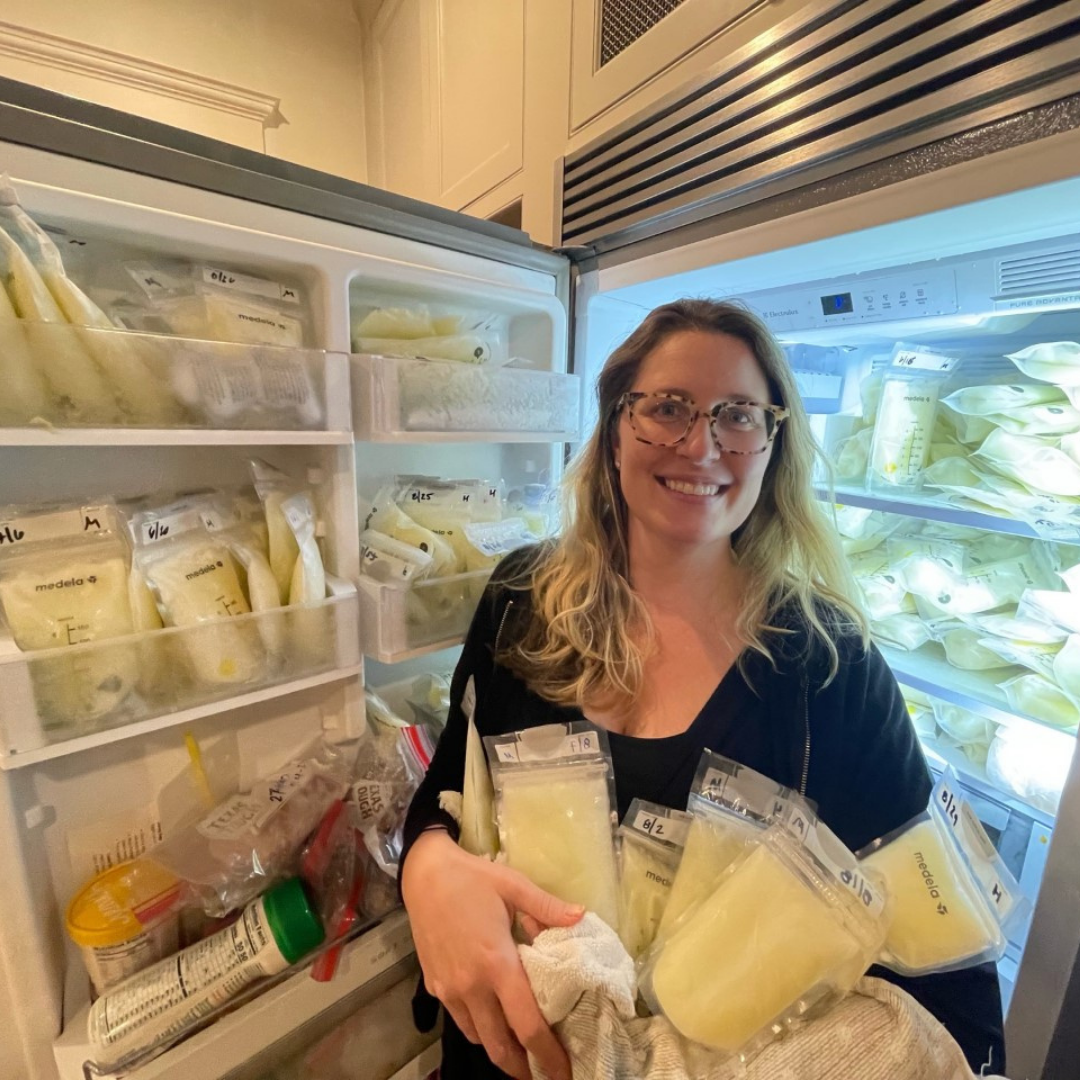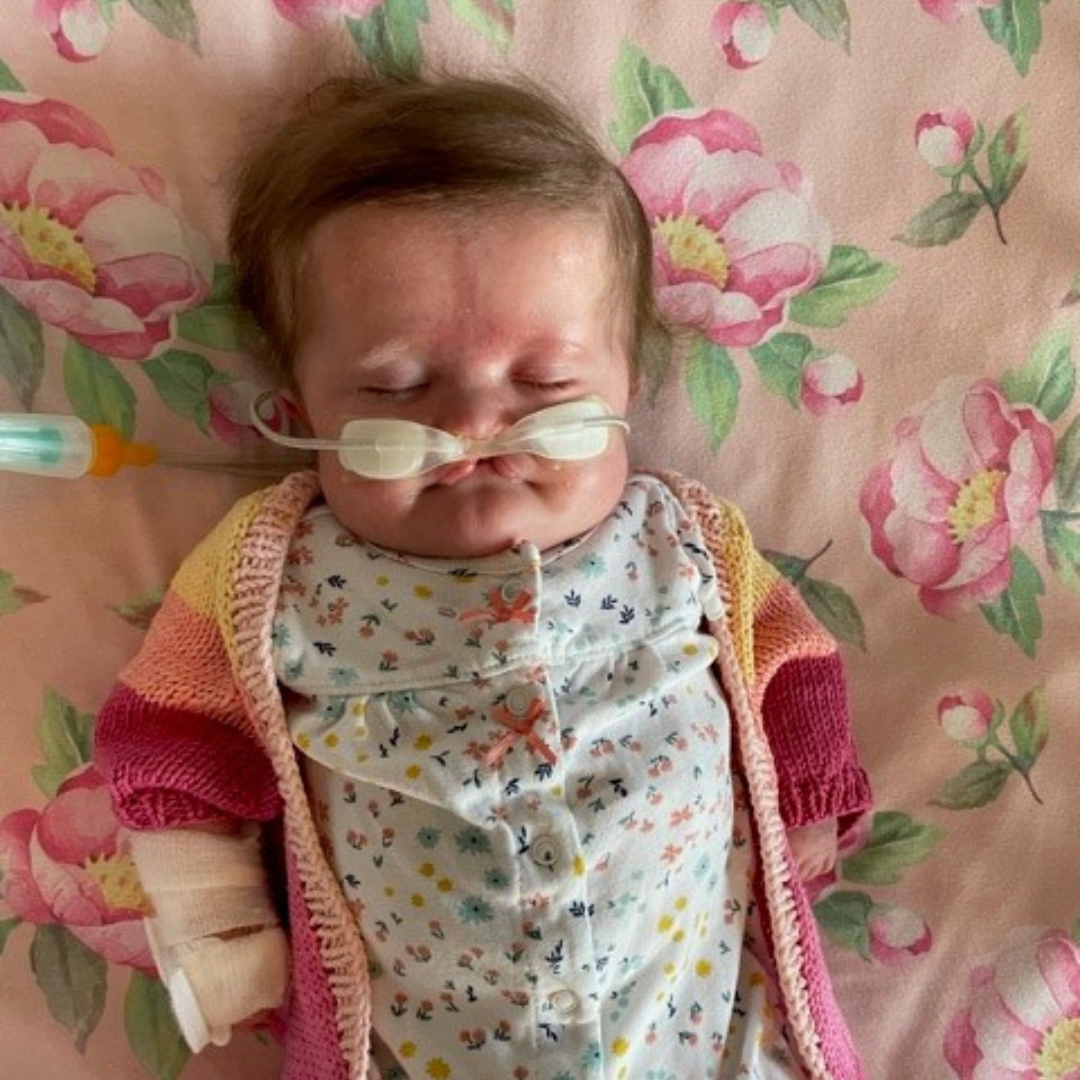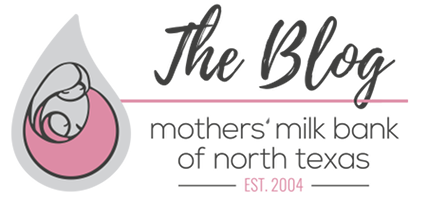All for Louise.
9/23/2021
At 20 weeks into her pregnancy, it was discovered during an ultrasound that Katie’s daughter Louise had what was thought to be a cleft lip. After further tests, it was discovered that Louise had a rare genetic deletion syndrome which causes brain and heart abnormalities. Katie was monitored every week for the rest of her pregnancy; there were so many unknowns about Louise’s condition that her team was not sure she would survive the pregnancy and birth. However, Louise is a warrior, and though she suffered from IUGR (intrauterine growth restriction) and was in the 3rd percentile for birth size, she was born after a full-term pregnancy at 4 lbs. 5 oz. Katie held Louise for a few moments and then Louise was taken to the NICU.
There were many long days ahead in the NICU for Louise, Katie and her husband as the team worked to determine the best course of treatment for the challenges associated with Louise’s syndrome. It was determined that Louise would require open-heart surgery, though it was necessary to wait until she was a few months older to allow her time to build her strength and grow.
It was on day three in the NICU that Katie met Dr. Sward, Louise’s neonatologist and founder of Mothers’ Milk Bank of North Texas. Because Louise did not master the “suck, swallow” fast enough while in the NICU, Katie began exclusively pumping, every 3 hours, every day to ensure Louise had breastmilk. Dr. Sward, with her no-nonsense and supportive approach, helped Katie find ways to not only bond with Louise without physically breastfeeding, but also to help Katie’s milk supply remain consistent. Dr. Sward also made sure Katie was doing okay, when days were long, hard, and emotionally draining. She encouraged Katie to take care of herself, too, throughout Louise’s stay in the in NICU.
It became clear early on that Katie had too much breastmilk for Louise. Due to Louise’s heart issues, she could only have a certain amount of liquids, otherwise it would overwork her heart, which was especially concerning due to a hole in her heart. Louise could not have surgery to fix this until she was older and stronger: she needed to gain weight to be able to have the surgery; but could not ingest too much breastmilk, full of the fatty nutrients needed to grow, so it was quite the balancing act. There were times, too, that Louise was only receiving fluids, not breastmilk.
But still, Katie continued to pump. She got up every 3 hours, and still does today. At the hospital, she would hold Louise, and then pump straight away, at Dr. Sward’s suggestion. When she was pumping during the night, she would call into the hospital and watch Louise on the NICU camera.
While Louise was in the NICU, the hospital would store Katie’s breastmilk for Louise. However, since Louise did not require a lot of milkthe hospital soon told Katie that they had too much milk and that she would have to start storing it at home as well. This is when Dr. Sward introduced Katie to Mothers’ Milk Bank of North Texas and shared, she could donate her extra breastmilk, helping other fragile babies.
Katie was very inspired by Dr. Sward; she said when she witnessed Dr. Sward in action, saw her humility, learned her credentials, and then heard her story, including the founding of the milk bank, it inspired her to want to do more to help fragile babies. Katie says, “I was galvanized by her. She’s magnetic and made me want to be a part of the impact she is having on others.”
So far Katie has donated over 1,300 ounces of breastmilk. She says that “with any of Louise’s medical situations, you have no control – I can’t fix her.” But “because of Louise, I can help another baby.” Katie is proud to donate her extra breastmilk to “help babies whose mom can’t [produce milk].”
Despite Louise’s challenging journey, Katie still manages to spread her joy and generosity, and make a big impact. She says, “What I learned from this, and work on practicing still today – one moment at a time, one day at a time.”
Louise is a little warrior and continues to fight many hurdles toward good health. Louise’s heart surgery was successful, and her heart function is improving. Her recovery went smoothly, and she was able to go home. However, in July Louise had an episode of pulmonary hypertension and had to be intubated for three weeks. While this is getting better, she has now developed seizures, as this can be triggered due to her other health issues. She is currently in the PICU while they work to find the right medicine to address her seizures.
Some days are sad and hard. Some days are filled with good news and progress. And there may be a long road ahead. But what has remained consistent through Katie and Louise’s story is that every day, without fail, Katie pumps. For Louise. And for other fragile babies.
